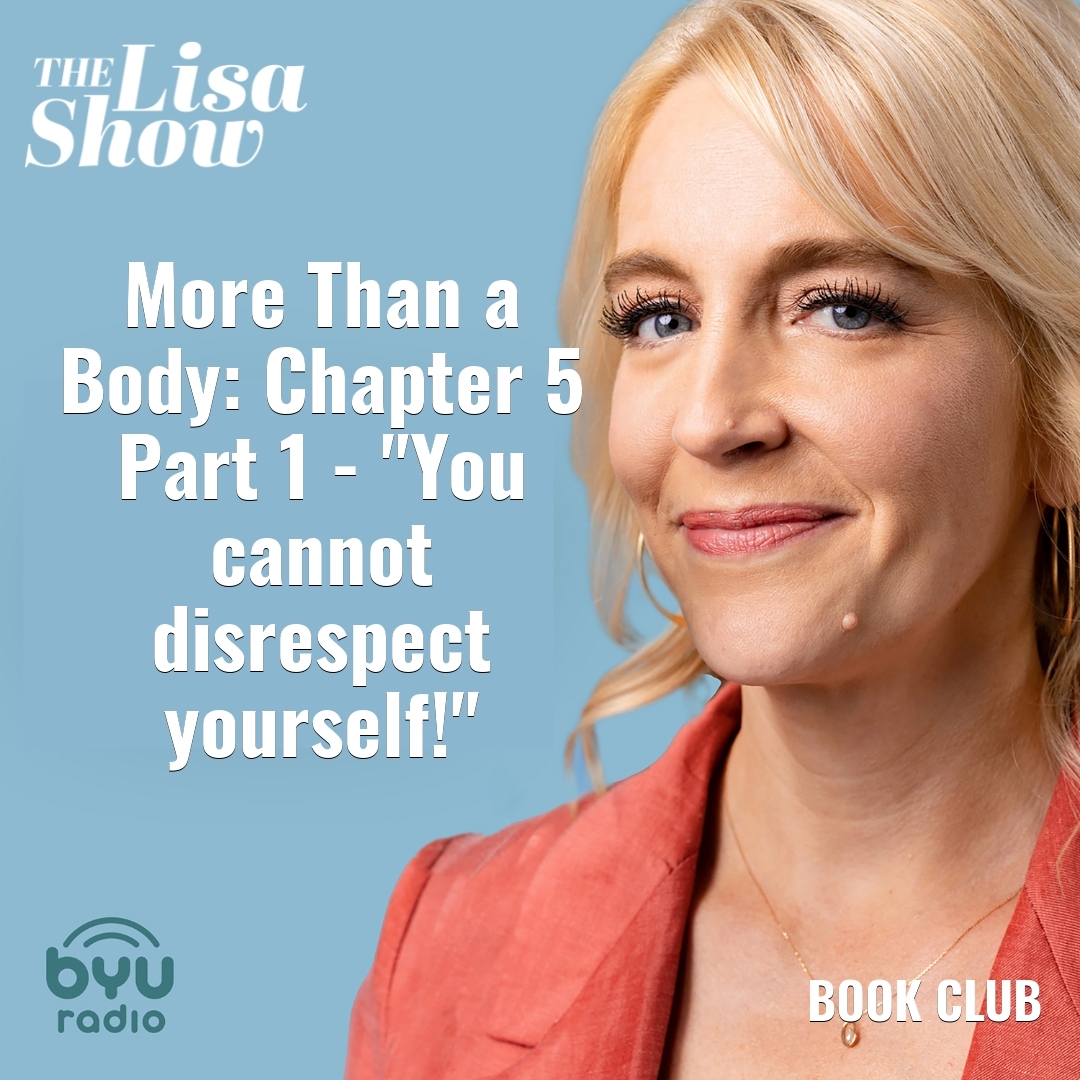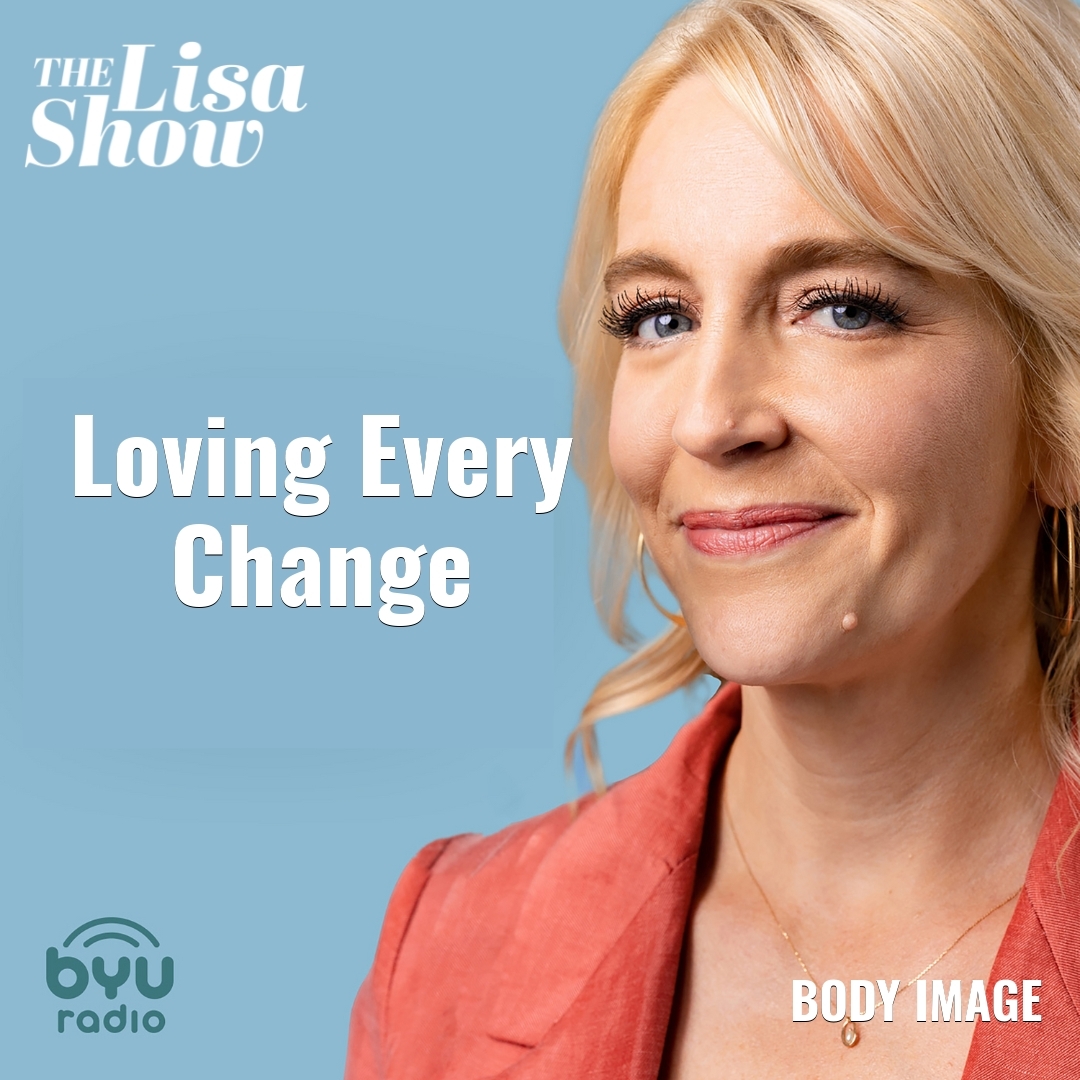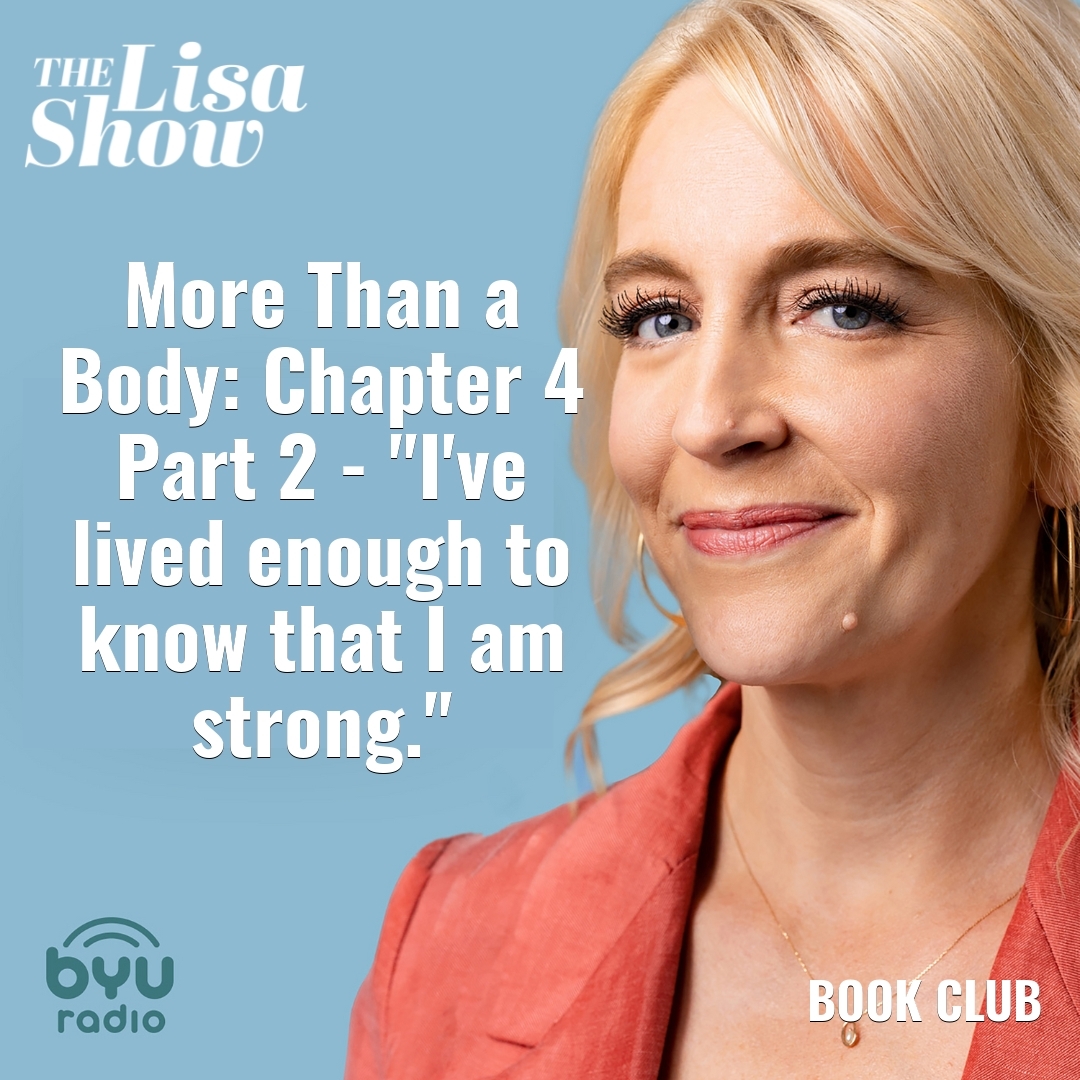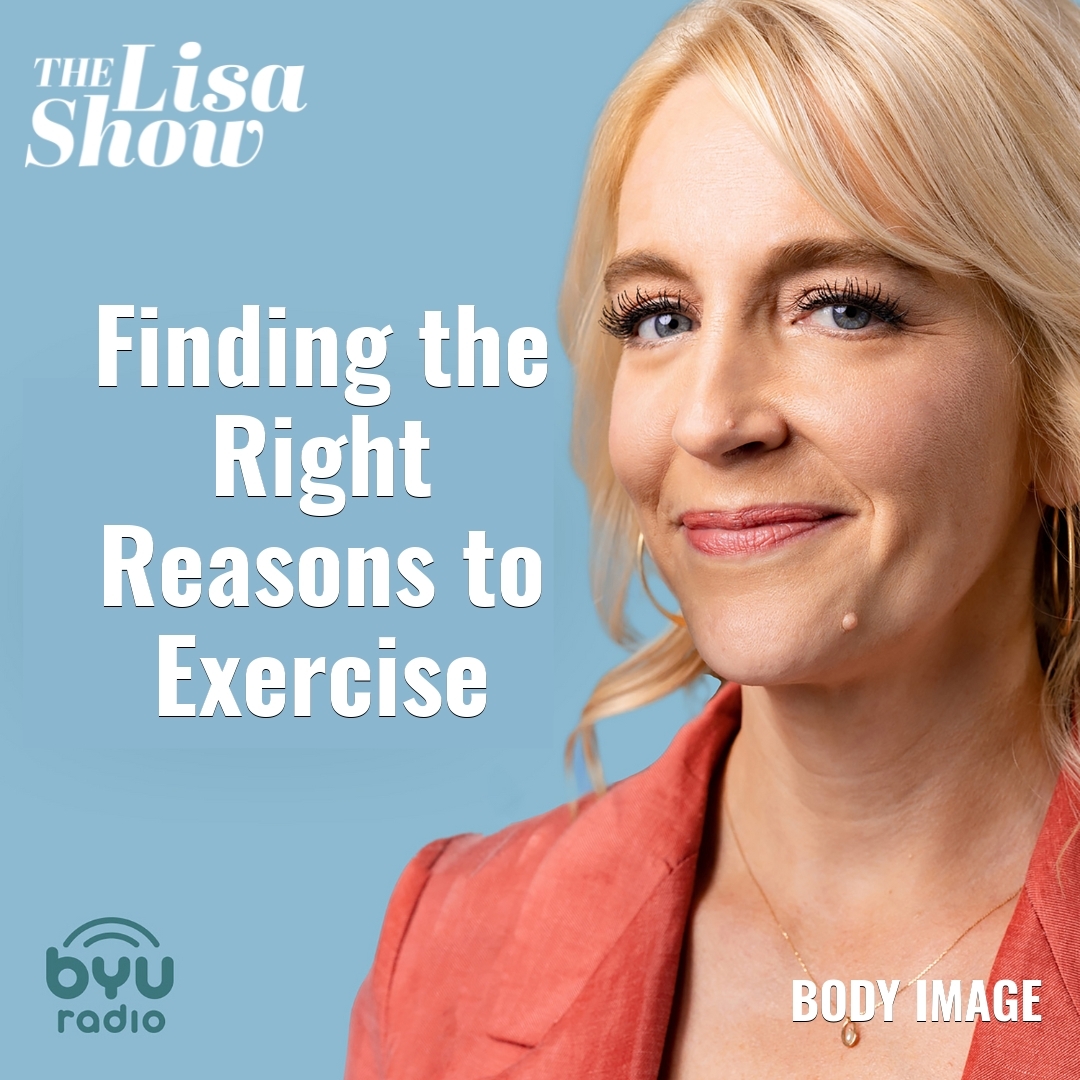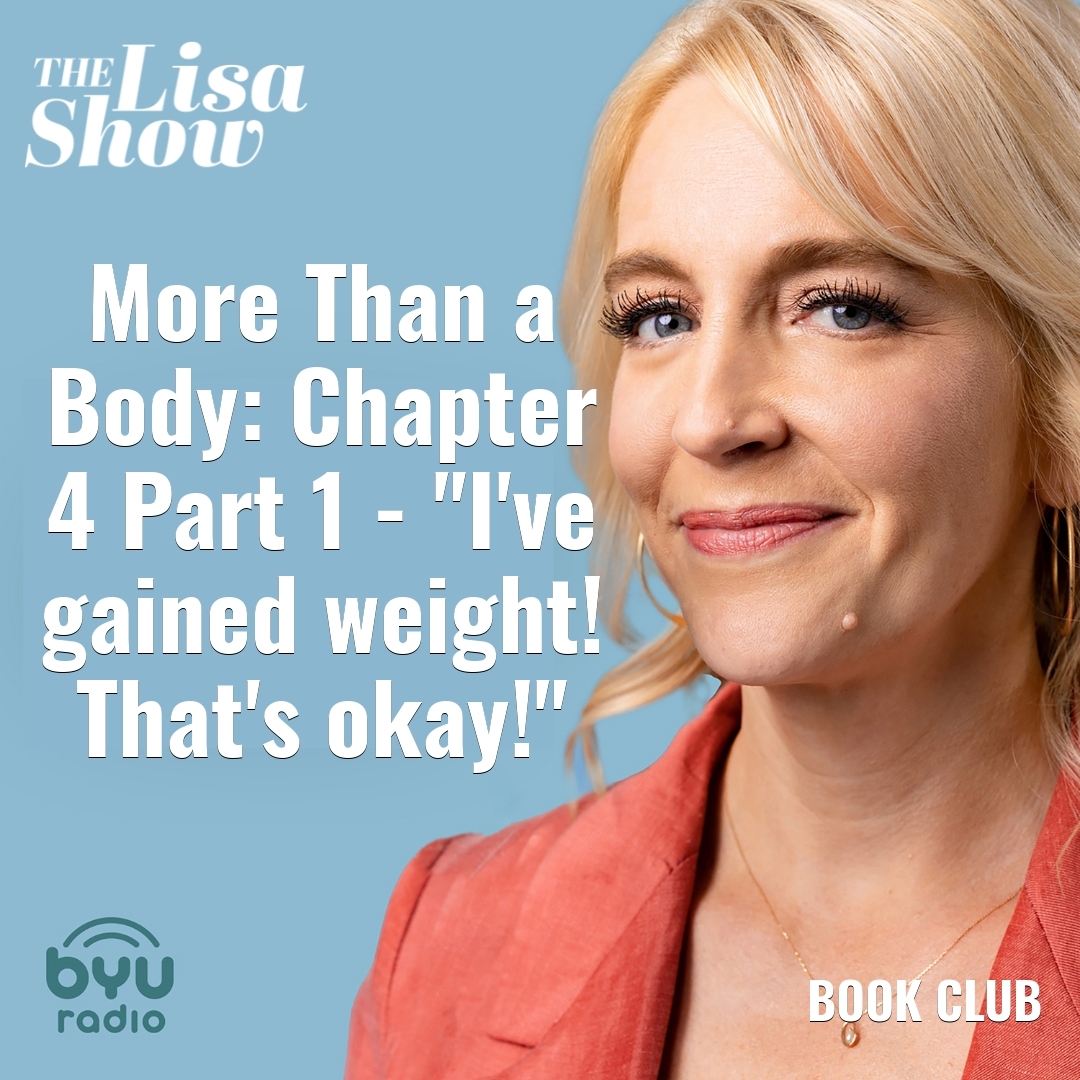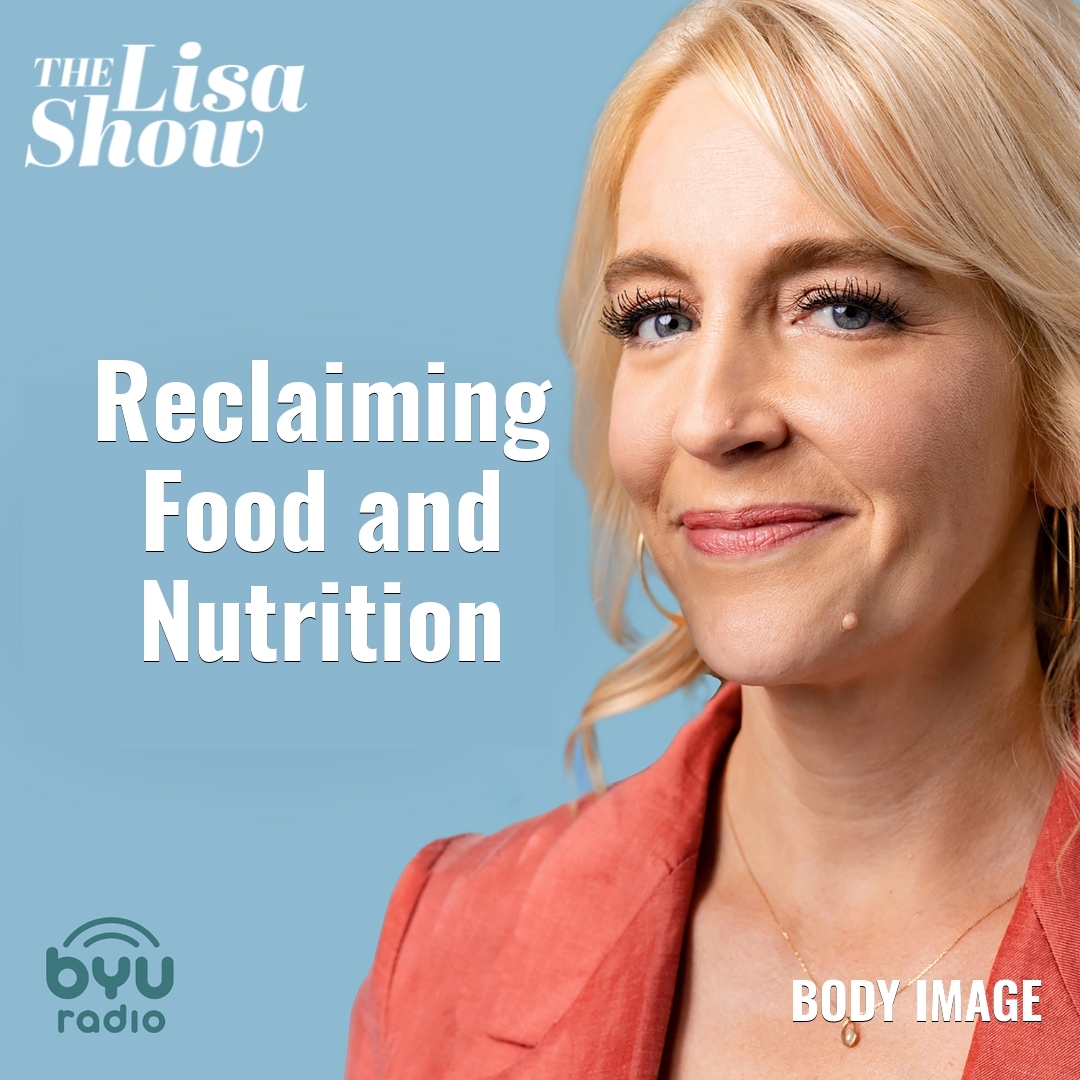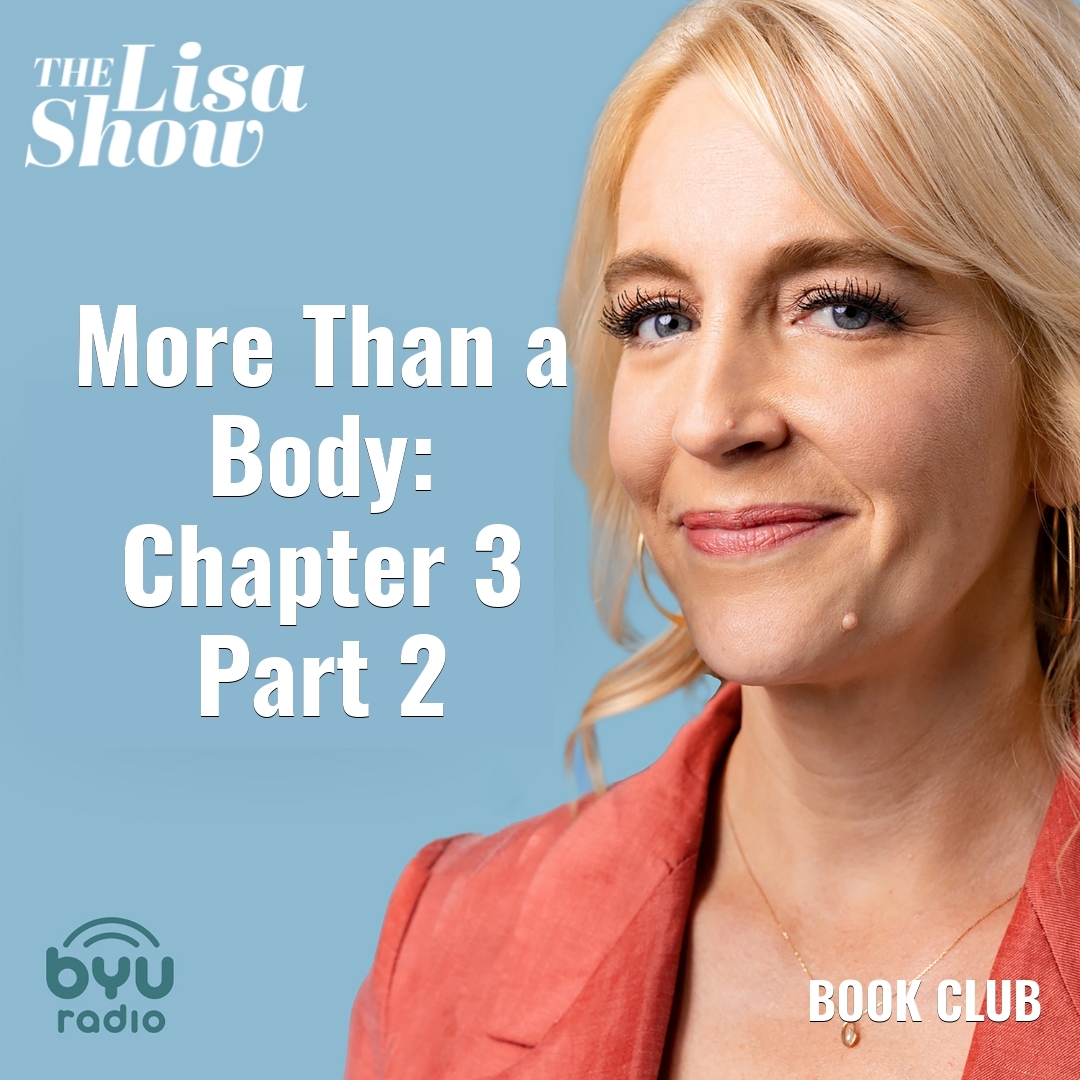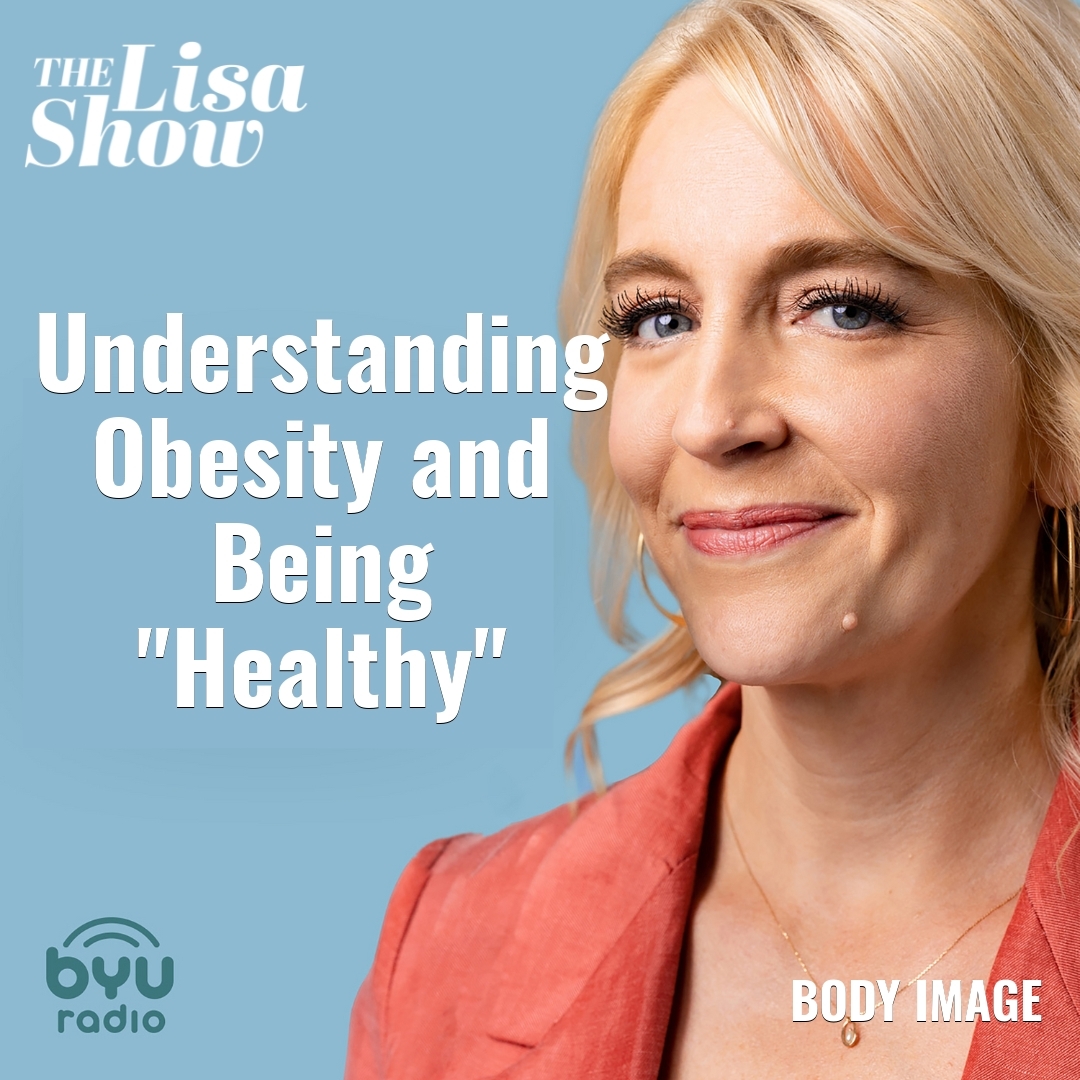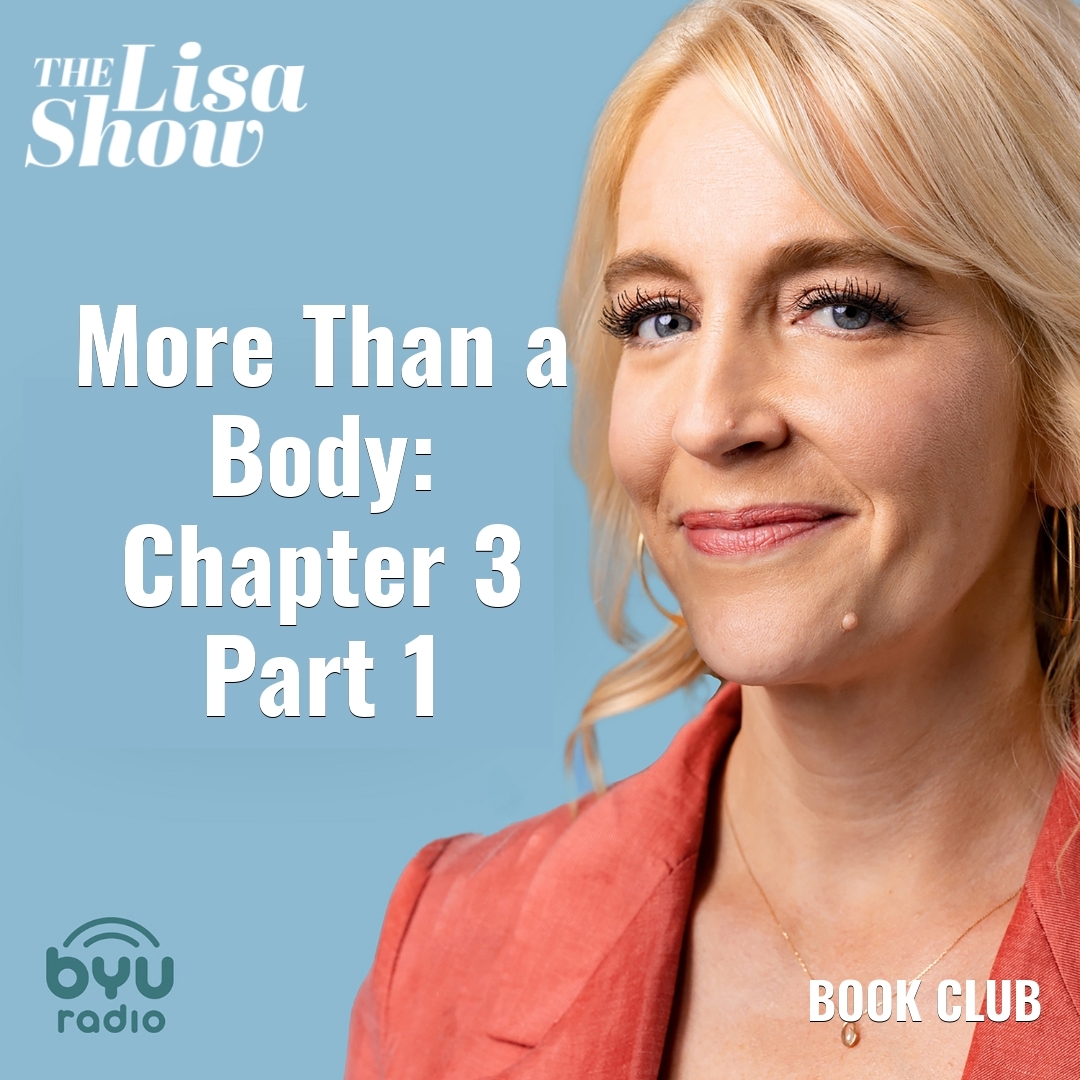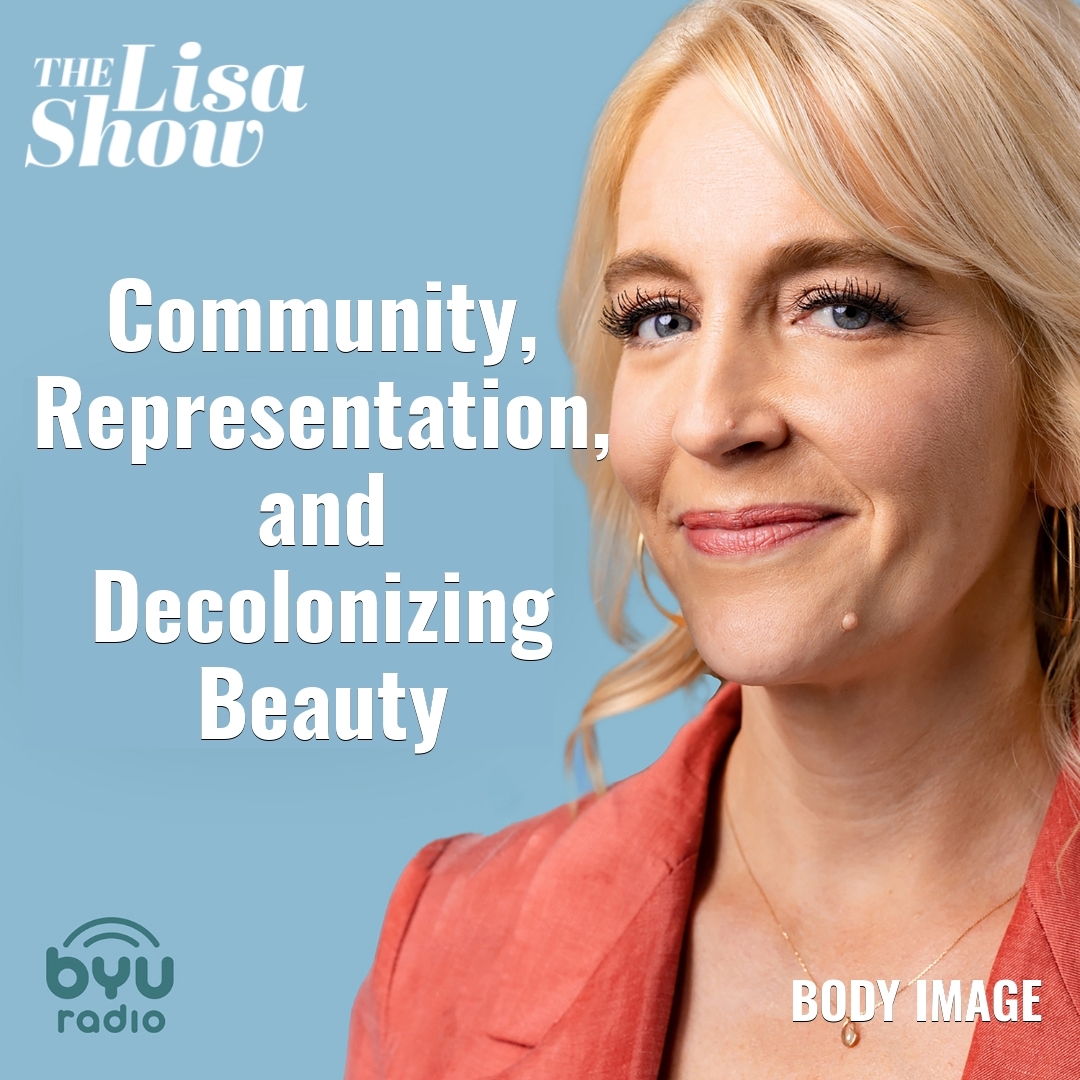Join comedian, believer, and single mom Lisa Valentine Clark for a good look at life. Whether it’s parenting challenges, mental health questions, or social issues, she and her Council of Moms will tackle it! So come figure out this life thing together with her, with a lot of laughs along the way. A production of BYUradio.
Lisa and her guests, Stefanie Michelle and Alex of Sassy Confetti, dive into Chapter 5 of More Than a Body by Drs. Lindsay and Lexie Kite, "Reclaiming Health and Fitness for Yourself". They share from their own journeys of body image and self-empowerment. What definition of "health" actually promotes mental and physical wholeness? Lisa, Stefanie and Alex dismantle false notions of "wellness" and share how they've found compassion for themselves and love for their bodies.
What would you do if your boss called you into their office for some feedback... because you revealed your age? Lisa shares her experience of the weird mixed messaging that so many of us experience when it comes to change and getting older. A special intergenerational Council of Moms reflects on different transitions that have impacted their body image, and how they learned to overcome personal and societal expectations for how their bodies would look or feel through pregnancy, perimenopause, menopause and all the other little transitions in between. They discuss moving past "turning back the clock" and on to loving bodies that were always meant to change.
Lisa and Whitney Call continue their conversation on part two of Chapter 4 of More Than a Body by Drs. Lindsay & Lexie Kite, "From Divided To United as Women". What changes when we replace appearance-based commentary and language with new conversations and topics? Breaking these habits is tricky, and requires a lot grace as we learn new ways to appreciate ourselves and each other. Lisa and Whitney examine their own internal monologues about body standards, and how the people in their circles responded to major changes in their appearance. Lisa remembers a compliment that felt like a dagger to the heart, and Whitney reflects on what she learned about parenting and anxiety from the reactions she received when she shaved her head. They discuss how women can find compassion and vulnerability with each other, and unite in their shared journey to self-love and a healthy body image.
How often do you go out and exercise not because you feel like you have to, or because you feel guilty that it's been too long, but because is was fun? It seems like in our busy lives often the only thing that can get us off of the couch and moving our bodies is the body shame we feel about not doing as much as we should be. But who is determining what exercise "should" look like in our lives? And is that expectation even a healthy one?
In this episode of The Lisa Show's series on Body Image, Lisa talks with personal trainer Matt Peale, mental health expert John Sovec, and this week's Council of Moms (Whitney Call, Emily Spencer, and Josephine Bills) to figure out where we went wrong when it comes to exercise and how we can make things right.
In this installment of Lisa's Book Club, Lisa and Whitney Call dive into part one of Chapter 4 of More Than a Body by Drs. Lindsay & Lexie Kite, "From Divided To United as Women". They explore the competitive space that women often find themselves in as a result of societal messages which say that there's only so much space to go around—and that women should take up less. What does body image have to do with female stereotypes that suggest women are "catty" or "vicious"—and who benefits from that? (Hint: it's not women.)
How do you know what to eat? Trying to find good information is harder than ever, especially in a diet culture-saturated world that insists "you are what you eat", distorts the idea of health, and encourages toxic relationships with food. Finding peace with the fuel which powers us is critical to enjoying a rich life and loving our bodies. Lisa assembles intuitive eating coach Saskia Carr, food scientist Michelle Menden, and the Council of Moms for a conversation about managing food and nutrition for ourselves and our kids. They discuss food rules, counteracting diet culture in their homes, and how they overcome the food anxiety, comparison, and perfectionism that so often comes to the table.
Lisa and Natalie Madsen continue their conversation on Chapter 3, "From Self-Objectification to Self-Actualization" from More Than a Body by Drs. Lindsay & Lexie Kite.
Whenever "body positivity" is mentioned, many people have a gut reaction of, "But we don't want to glorify obesity--that would be unhealthy!" It seems like many people see quote-unquote "healthy" living as something that can't coexist with loving your body at any size. On the other hand, many people are advocating for greater body love wherever body conversations are happening: in advertising, in movies, at the dinner table, and even at the doctor's office. So where is the disconnect? And how can we live our healthiest lives now, physically and emotionally, while working towards whatever goals we're shooting for?
Lisa and Natalie Madsen dive into Chapter 3, "From Self-Objectification to Self-Actualization" from More Than a Body by Drs. Lindsay & Lexie Kite. Natalie reflects on her experience as an actress and comedian on sketch comedy TV show Studio C through three pregnancies, and the the subtle messaging that made physical appearance feel so pivotal to success. How does self-objectification relate to people pleasing? Is it possible to push past the mental noise and get back to a "flow" state? Lisa and Natalie talk candidly about their own "beauty work" and how they keep the pressure to look good from taking over lasting personal happiness.
What role does a community play in making a safe space for all bodies? How do Eurocentric beauty standards affect us individually and collectively? Lisa sits down with Bryson Alejandro and Rachel Ostler, who share their own journeys of body love as people of color and as advocates for better media representation. Dr. Gigi Awad shares some of the psychology behind body image, the impact of idealized images on our brains, and how we can be a little more aware of stigmas that we may not even know we have, so that we can make our environment--onscreen and off--better for everyone.

